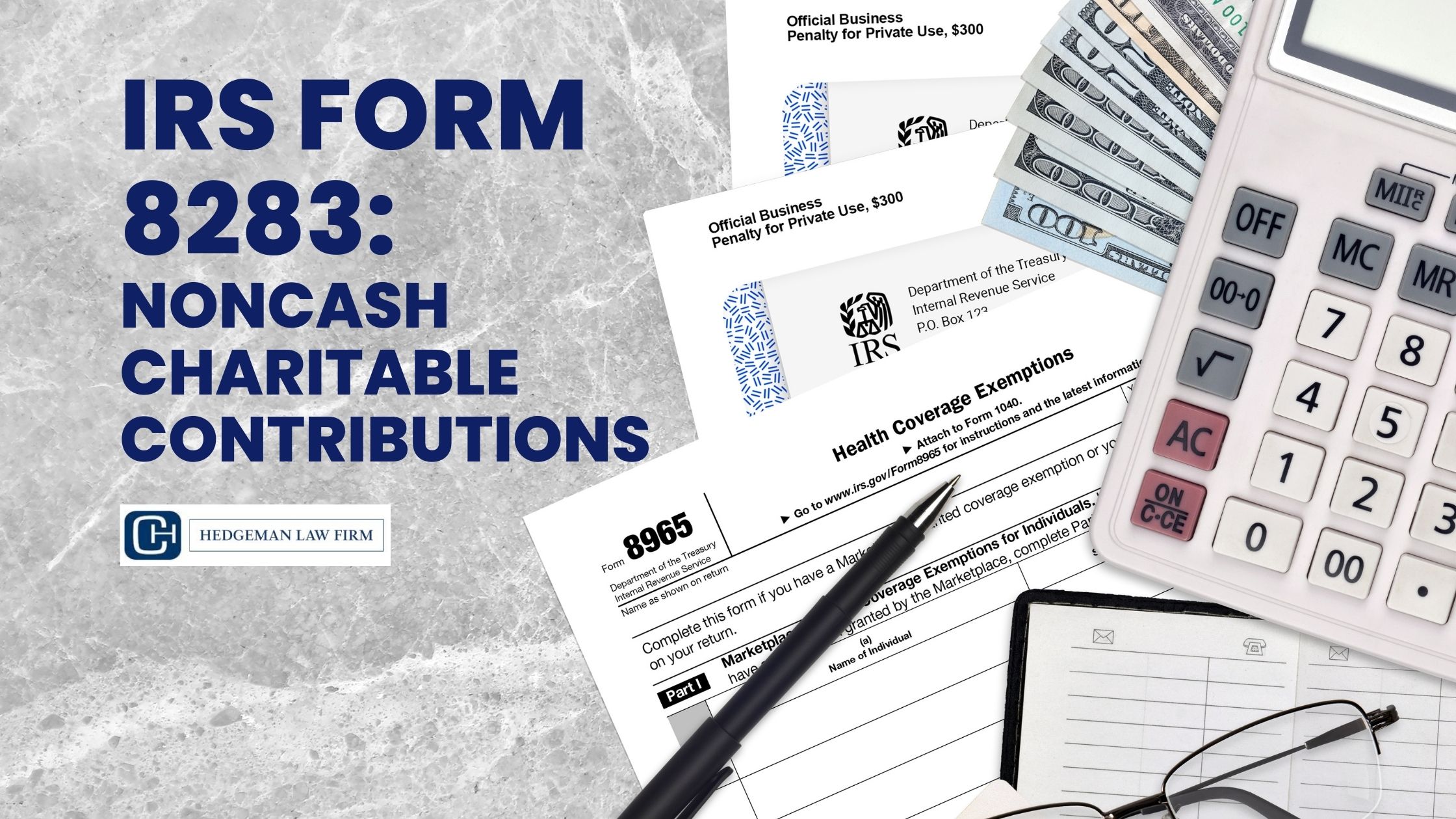Noncash Charitable Contributions: Understanding IRS Form 8283

In the landscape of charitable giving, navigating IRS requirements is paramount for individuals, partnerships, and corporations making noncash contributions. The filing of Form 8283 becomes essential when the total value of these contributions exceeds $500 within a tax year. This form is not just a bureaucratic requirement; it is a crucial tool for ensuring the accuracy and transparency of your tax returns, thereby minimizing the risk of an IRS audit.
Form 8283
Form 8283 serves as a comprehensive report to the IRS, detailing the noncash charitable contributions made. It substantiates the value of the contributions you claim as deductions on your tax return, acting as a record of your philanthropy and a protective measure against potential tax authority scrutiny.
Who Needs to File?
Individuals: Any individual taxpayer who has donated noncash items exceeding a total value of $500 is required to file Form 8283.
Partnerships and Corporations: The same threshold applies to partnerships and corporations. These entities must maintain accurate records of their noncash charitable contributions, ensuring the proper reporting of each partner’s share of the donation.
Examples of Noncash Contributions
Noncash charitable contributions can vary widely, encompassing items such as:
- Physical Goods: Clothing, household items, and electronics
- Stocks and Bonds: Transferring shares.
- Real Estate: Donating property, land or buildings.
- Artwork and Collectibles: High-value items like paintings, sculptures, or rare collections given to museums or educational institutions.
- Software and Technology Solutions: Software companies frequently donate products and technology solutions to nonprofits, educational institutions, and community organizations.
- Services: professional services. This can include legal advice, marketing assistance, consulting, or training sessions provided pro bono to nonprofits.
Key Sections of Form 8283
Section A: For items with a claimed deduction of $5,000 or less per item or group of similar items. Most taxpayers report their contributions here, detailing the type of property donated and the recipient charity.
Section B: For items where the claimed deduction exceeds $5,000. Noncash charitable contributionsin this section require a qualified appraisal, subject to rigorous IRS appraisal standards.
The Critical Role of Qualified Appraisals
A “qualified appraisal” is mandatory for all gifts of non-cash property valued over $5,000. This appraisal must be conducted by a “qualified appraiser,” adhering to specific standards outlined by the IRS. The appraisal serves as a foundational document, validating the claimed value of the donated property, and is essential for both the donor and the receiving organization. Failure to obtain a qualified appraisal or to attach the required appraisal summary to Form 8283 can result in the denial of the deduction, which is capped at 20% to 50% of the taxpayer’s adjusted gross income, and potential penalties.
Your Attorney’s Role
An attorney can guide the valuation process, helping to avoid common pitfalls that might lead to an IRS audit. This includes ensuring the appraisal methods used are accepted practices and reflect the true value of the contributed property.
An attorney can offer strategic advice on maximizing tax benefits while maintaining compliance with both IRS regulations and corporate governance standards. This is especially pertinent for donations of inventory, equipment, or intellectual property, where the valuation and documentation requirements can be particularly stringent.
Best Practices for Compliance
- Keep Detailed Records: Maintain records of the donated property, including its condition, which affects its valuation.
- Understand the Valuation Rules: Align your valuation estimates with IRS guidelines for accepted practices.
- Seek Professional Advice: For high-value donations or complex situations, consulting with a tax professional and attorney is advisable.
Reducing the Risk of an Audit
Filing Form 8283 with complete and accurate information, supported by solid documentation, demonstrates compliance and deters IRS scrutiny.
Charitable giving, while noble, requires a meticulous approach to ensure tax obligations are met. Your attorney can play a critical role in strategic planning for future charitable contributions. This includes advising on the timing of donations, selection of recipient organizations, and structuring of contributions to maximize tax benefits and align with the donor’s philanthropic goals.
